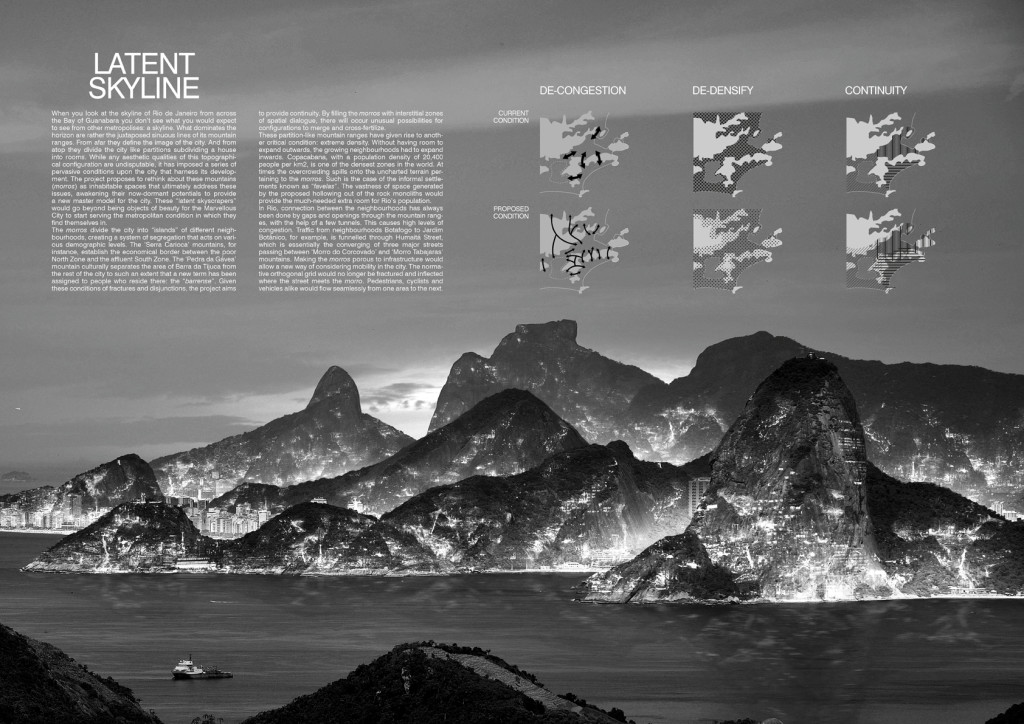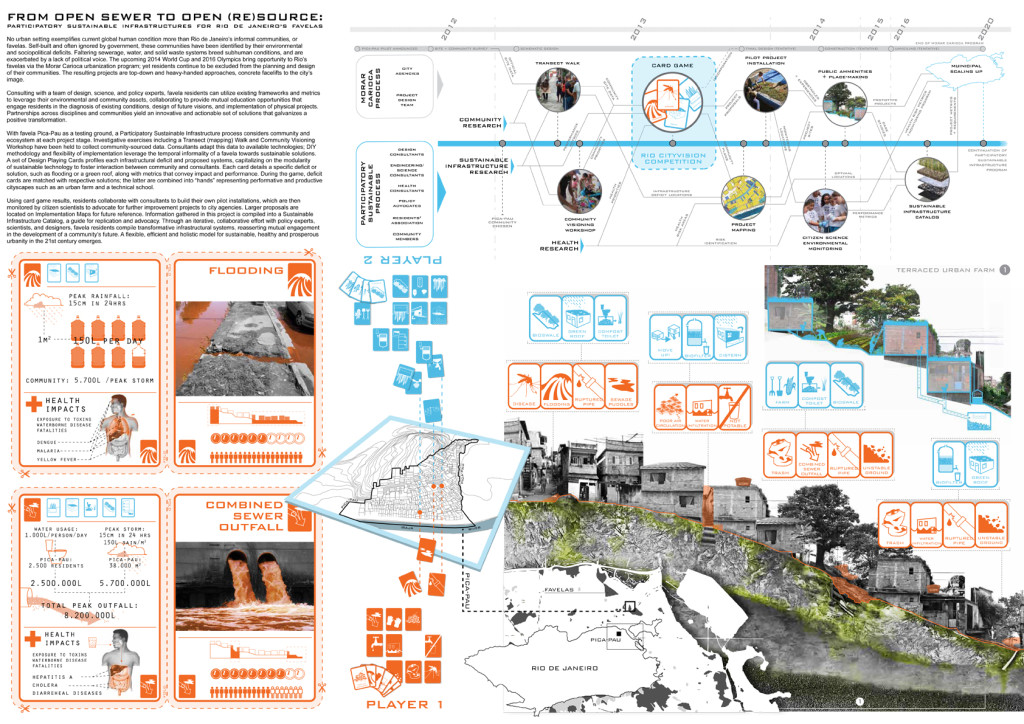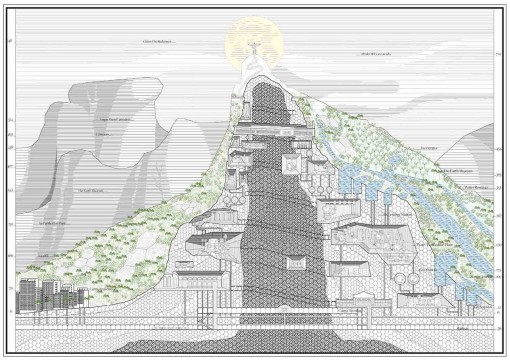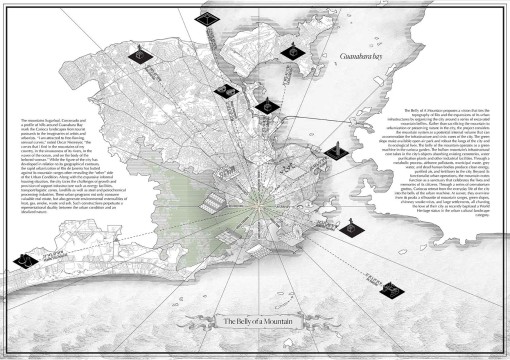Info:
Title: The Belly of a Mountain - Code: f21caContest: Rio de Janeiro / 2013
By: ejazairy - Jia Weng - Yu-Hsiang Lin - Dongye Liu
Views: 4825 Likes: 1
Votes:
Alejandro Zaera-Polo 5 Jeffrey Inaba 7 Jeroen Koolhaas 6 Hernan Diaz Alonso 1 Cristiano Toraldo di Francia 7 Pedro Rivera 95.8
The Belly of a Mountain
The Belly of A Mountain: The mountains Sugarloaf, Corcovado and a profile of hills around Guanabara Bay mark the Carioca landscapes from tourist postcards to the imaginaries of artists and urbanists. “I am attracted to free-flowing, sensual curves,” noted Oscar Niemeyer, “the curves that I find in the mountains of my country, in the sinuousness of its rivers, in the waves of the ocean, and on the body of the beloved woman.” While the figure of the city has developed in relation to its geographical contours, the rapid urbanization of Rio de Janeiro has butted against its mountain ranges often revealing the “other” side of the Urban Condition. Along with the expansive informal housing situation, the city faces the challenges of growth and provision of support infrastructure such as energy facilities, transport/logistic zones, landfills as well as steel and petrochemical processing industries. These urban programs not only consume valuable real estate, but also generate environmental externalities of heat, gas, smoke, waste and ash. Such constructions perpetuate a representational duality between the urban condition and an idealized nature. The Belly of A Mountain proposes a vision that ties the topography of Rio and the expansions of its urban infrastructures by organizing the city around a series of excavated mountain bellies. Rather than sacrificing the mountain to urbanization or preserving nature in the city, the project considers the mountain system as a potential internal volume that can accommodate the infrastructure and civic cores of the city. The green slops make available open-air park and reboots the lungs of the city and its ecological lives. The belly of the mountain operates as a green machine in the carioca garden. The hollow mountain’s infrastructural core takes in the city’s objects absorbing existing cemeteries, water puri?cation plants and other industrial facilities. Through a metabolic process, airborne pollutants, municipal waste, grey water, and dead human bodies produce clean energy, puri?ed air, and fertilizers to the city. Beyond its functionalist urban operations, the mountain crates function as a sanctuary that celebrates the lives and memories of its citizens. Through a series of crematorium grottos, Cariocas retreat from the everyday life of the city into the belly of the urban machine. At sunset, they overview from its peaks a silhouette of mountain ranges, green slopes, chimney smoke mists, and large settlements, all chanting the love of their city as recently baptized a World Heritage status in the urban cultural landscape category.
Info:
Title: The Belly of a Mountain
Time: 4 agosto 2013
Category: Rio de Janeiro
Views: 4825 Likes: 1
Tags: -








